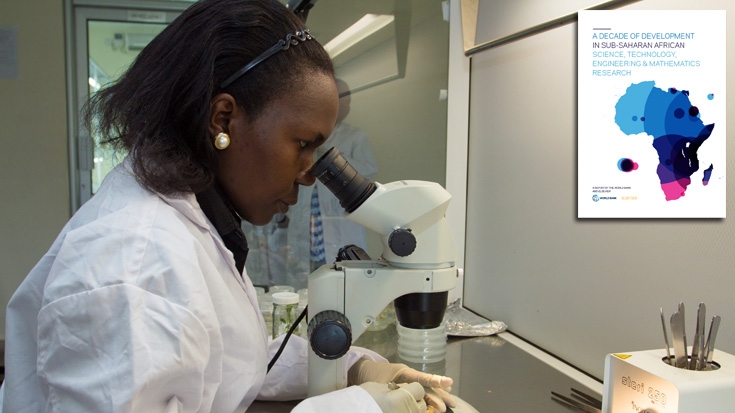“The share of work coming from East, West and Southern Africa is rising steadily,” says Andreas Blom, Lead Education Specialist at the World Bank and co-author of the report A Decade of Development in Sub Saharan African Science, Technology, Engineering and Mathematics Research. “African governments realize the importance of creating, using and sharing knowledge to build human capital and as a key driver of economic growth.”
Most research in Africa focuses on agriculture and the health sciences, as the continent is battling serious diseases like HIV/AIDS, malaria, and most recently the Ebola epidemic. But missing from the equation is research in the physical sciences and in the science, technology, engineering and math (STEM) based fields. STEM research makes up only 29% of Sub Saharan Africa’s output, leaving a gap in many countries’ ability to enhance sectors like energy, transport, light manufacturing and the extractive industries. Yet progress in these sectors could transform Africa’s economies and help end poverty.
The problem for much of Sub Saharan Africa: a low quality of basic education in science and math, a higher education system skewed toward disciplines like the humanities and social sciences, and low levels of international funding that focus heavily on health and agricultural research.
“Agriculture and health are certainly critical,” says George Lan, Analytical Product Manager at Elsevier and the report’s co-author. “What we are saying is that STEM research should also be a priority and that raising the capacity of institutions to produce valuable research in science and engineering could help transform Africa and generate broad gains to society. For instance, Africa has vast natural resources but too little capacity to take the lead on their extraction, production and sale.”
In addition to benefitting countries and the region as a whole, improving the quality of higher education in STEM fields would benefit millions of youth entering the job market each year in Africa. More than 50 percent of Africa’s population is below the age of 25. Given this youth bulge, more young people need to acquire training and expertise to prepare them for jobs in fields like ICT and agricultural sciences.
Some countries have made headway, according to the report. In Uganda, the Millennium Science Initiative, a US$33 million investment aimed at producing more and better qualified science and engineering graduates, helped increase the number of Ugandan researchers from 261 to 720.and the number of Master’s students more than doubled.
